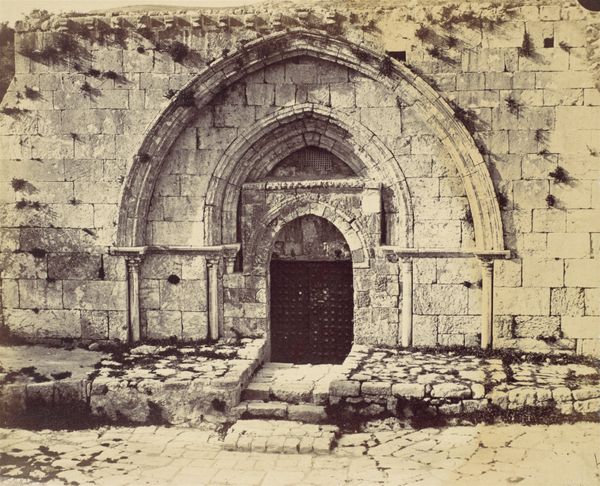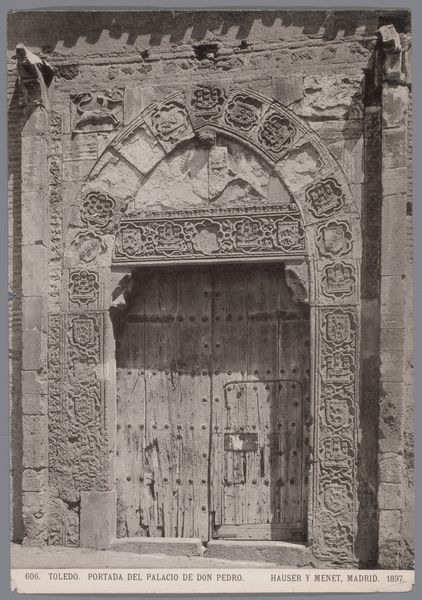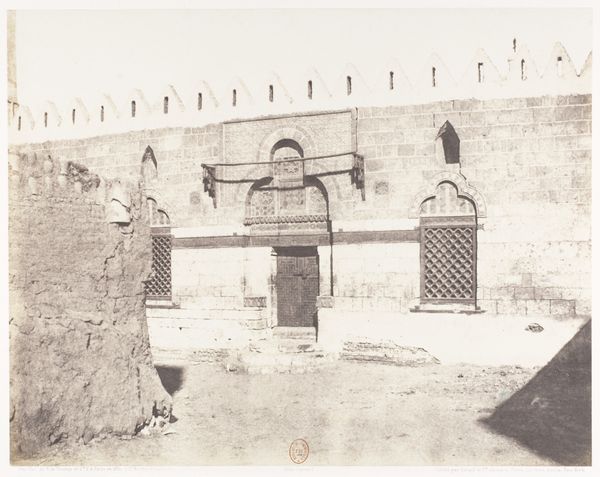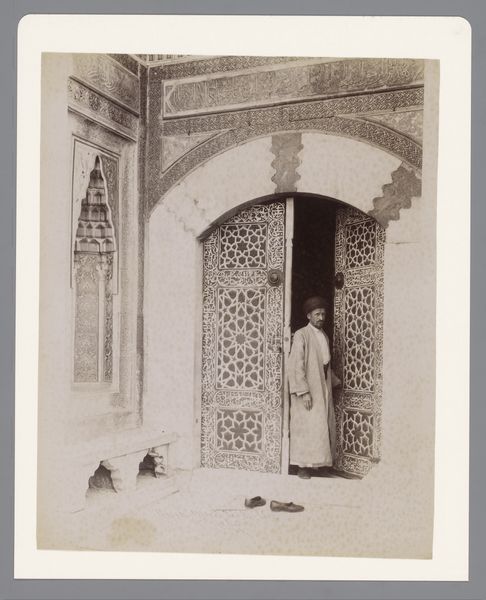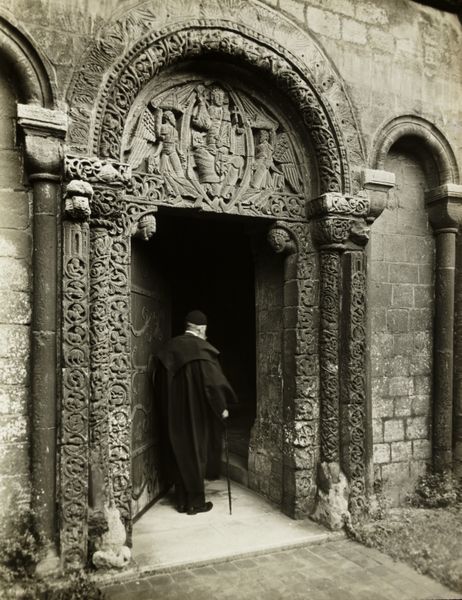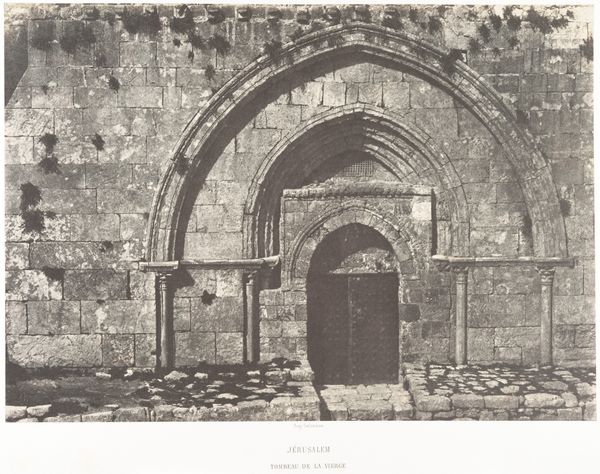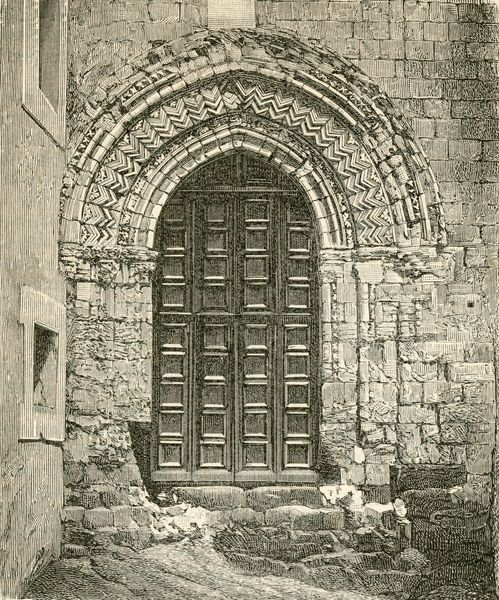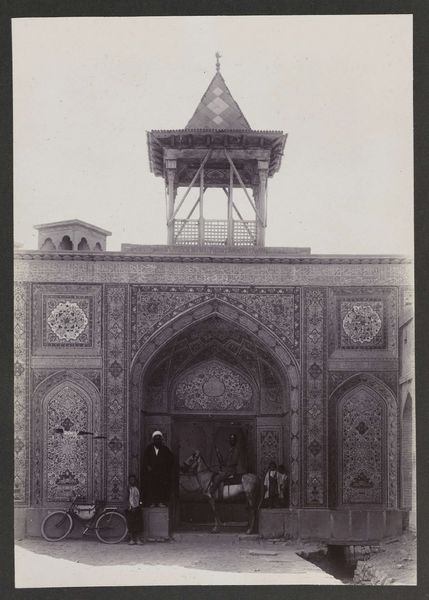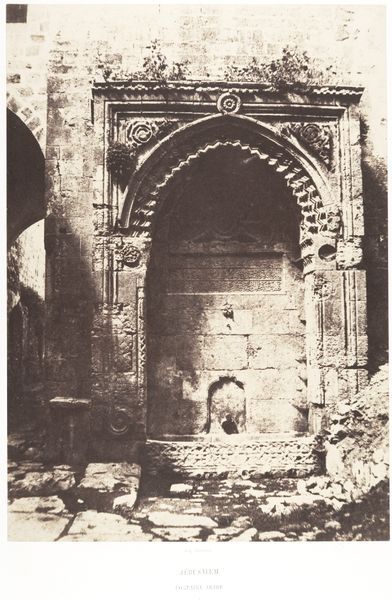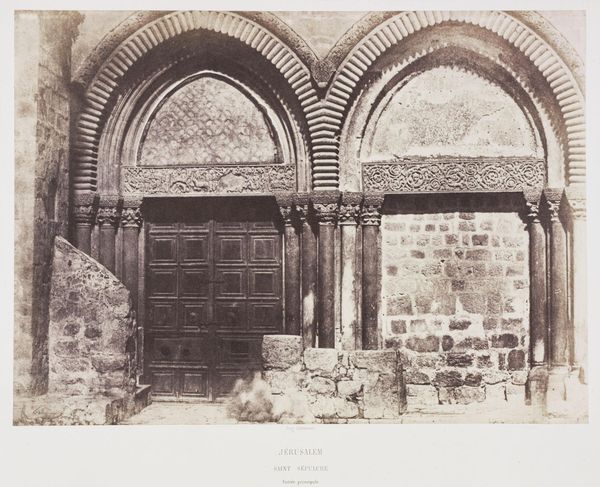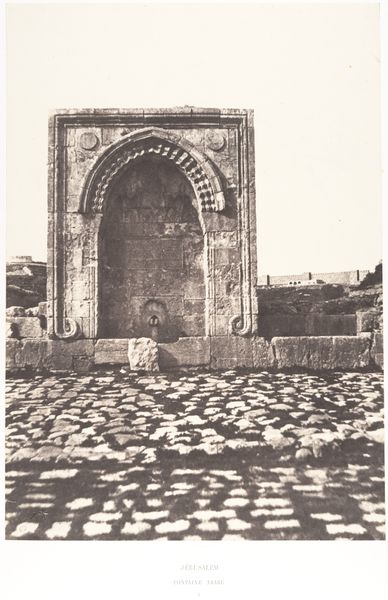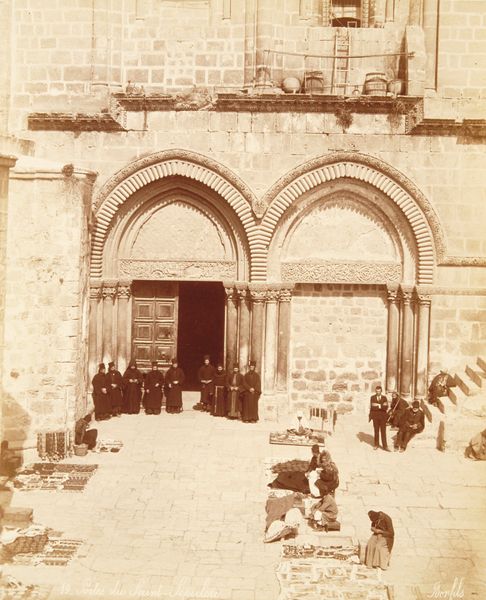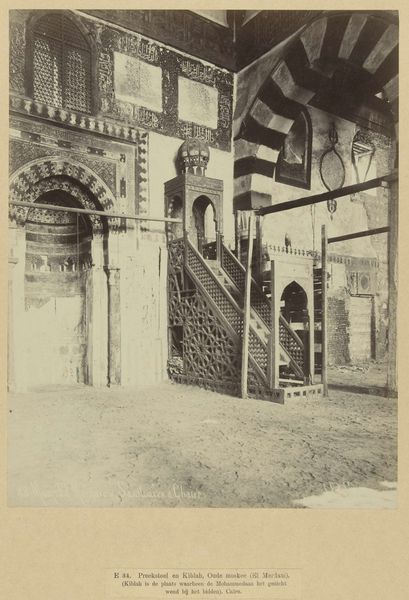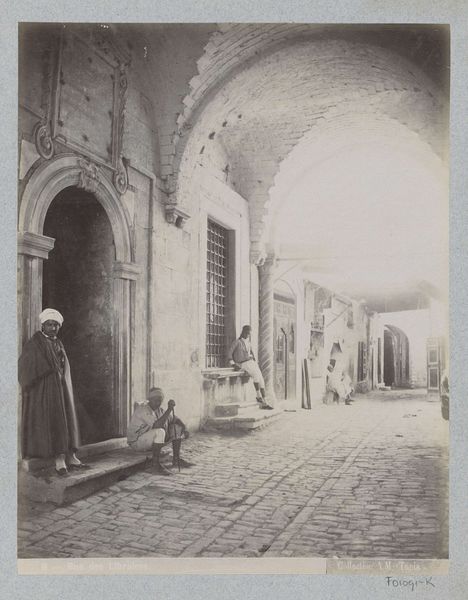
print, photography, architecture
#
portrait
# print
#
sculpture
#
landscape
#
historic architecture
#
photography
#
romanesque
#
geometric
#
history-painting
#
architecture
#
realism
#
historical building
Dimensions: Image: 43.4 x 35.2 cm (17 1/16 x 13 7/8 in. )
Copyright: Public Domain
The Bisson Frères made this photograph of the Portal of Saint-Ursin in Bourges, sometime between 1852 and 1863. Photography at this time was a complicated, alchemical process involving many steps. The Bisson brothers were known for using the wet collodion process, where a glass plate was coated with chemicals, exposed in the camera while still wet, and then developed immediately. This laborious method, requiring a portable darkroom, resulted in incredibly detailed images. You can see that intense clarity here, in the stone carvings above the doorway. The tonal range of the photograph is also remarkable. From the darkest shadows within the doorway to the sunlit cobblestones, the Bisson's coaxed a remarkable amount of information from their materials. While photography was quickly becoming a popular means of documentation, works like this remind us that it was also a deeply skilled practice, every bit as thoughtful and crafted as a painting or sculpture. By attending to such works, we recognize the artistry inherent in the photographic medium.
Comments
No comments
Be the first to comment and join the conversation on the ultimate creative platform.
